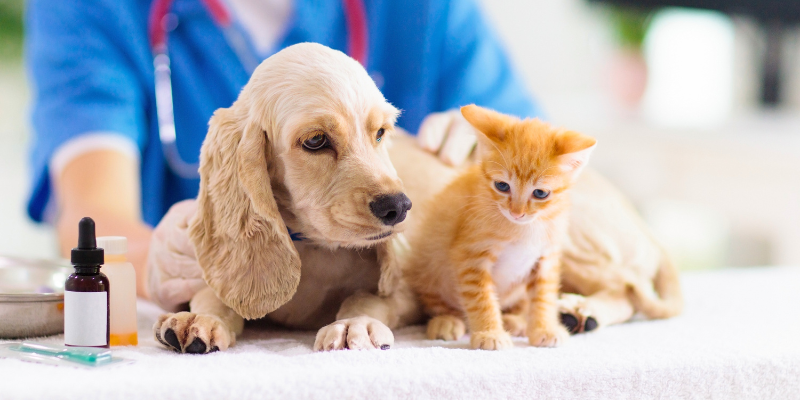“Does my pet need vaccinations every year?”
If this question has been needling you, read on for the answer to this and other common vaccination queries that our team receives!
1. What vaccinations does my pet need?
The World Small Animal Veterinary Association recommends that all cats and dogs receive the “core vaccinations”, which are the C3 for dogs (canine distemper, parvovirus and adenovirus) and the F3 for cats (feline calicivirus, herpesvirus and panleucopaenia). These vaccines protect against diseases that are life-threatening and/or particularly common around the world.
Depending on your pet’s lifestyle (specifically, the geographical areas and environments that they live in and travel to), we will then potentially recommend additional vaccines based on their particular risk.
In the Sutherland Shire, we strongly advise all dogs to get at least a yearly C5, which also covers the Canine Cough (or dog flu). In some cases, which our vets can discuss with you, a Leptospirosis vaccination is advised as well.
For outdoor cats, there is an option to protect against FIV as an extra (non core) vaccination. In order to protect against FIV, a special initial protocol with 3 vaccinations +/- a blood test depending on the cat’s age, is required, followed by yearly boosters.
2. Does my pet need vaccination every year?
Our vets will make personalised vaccination schedule recommendations for your pet, where we will take into account:
● Your pets’ age
● Your pet’s lifestyle, such as if they go outdoors, into boarding, or live in a multi-pet household
● Whether your pet has any unusual autoimmune issues which may make vaccination less safe for them (this is very rare, but in these rare cases where it is advised not to vaccinate, the pet depends on a good herd immunity in the rest of the local pet population, which is another good
reason to be vigilant with vaccinating our pets).
As well as getting vaccinated, the benefit of a yearly visit is getting an annual veterinary health check to help keep them in their best health. After all, once your pet is a fully developed adult, one human year roughly equals five dog years or four cat years!
3. Why is there a strict vaccination schedule for puppies and kittens?
In the first hours after birth, puppies and kittens gain some temporary passive immune protection from their mother by drinking the antibodies in her colostrum (the special milk she produces shortly after giving birth). These antibodies help to protect the babies until their own immune system matures, but naturally taper off somewhere between 14-20 weeks of age (depending on the individual, and depending on the amount ingested in the first place).
These maternal antibodies (if ingested in sufficient amounts) will protect the baby but will also block the babies’ immune system from mounting a sufficient response to vaccines to develop their own long-term protection, and when they decrease, or were not ingested in sufficient amounts the baby will be unprotected against the diseases.
Puppy and kitten vaccine schedules are therefore designed to maximise the chances of stimulating their immune system at the optimal time when the maternal antibodies have decreased sufficiently to allow the vaccine to take effect, without hopefully leaving the pet completely unprotected for too long in the meantime.
4. What should I do if my pet is overdue for vaccination?
We’d recommend consulting our helpful team! Depending on your pet’s age, individual risk and prior vaccination history, they may only require a single booster to get them back up to date or they may need a course of two vaccinations (or 3, e.g. in the case of FIV vaccinations), administered 2-4 weeks apart.
If your pet has been deemed to be at an unusually increased risk of significant vaccination side effects (e.g. for specific conditions or for some diseases), our vets may discuss special blood tests to help check measures of immunity in their blood instead.
For personalised advice on your pet’s vaccination requirements, consult our veterinary team!

